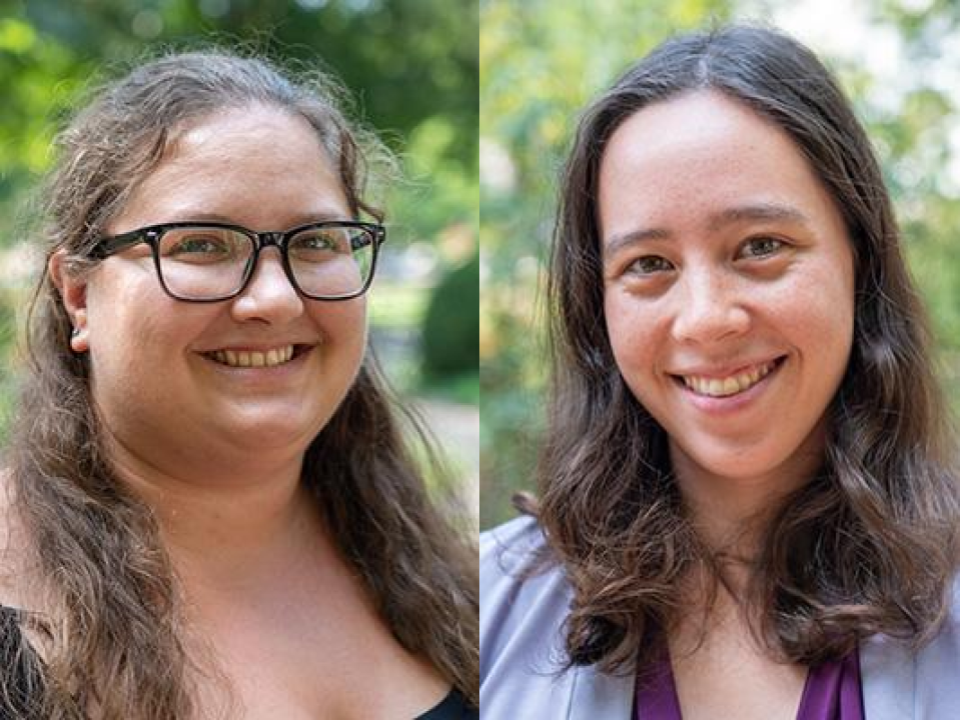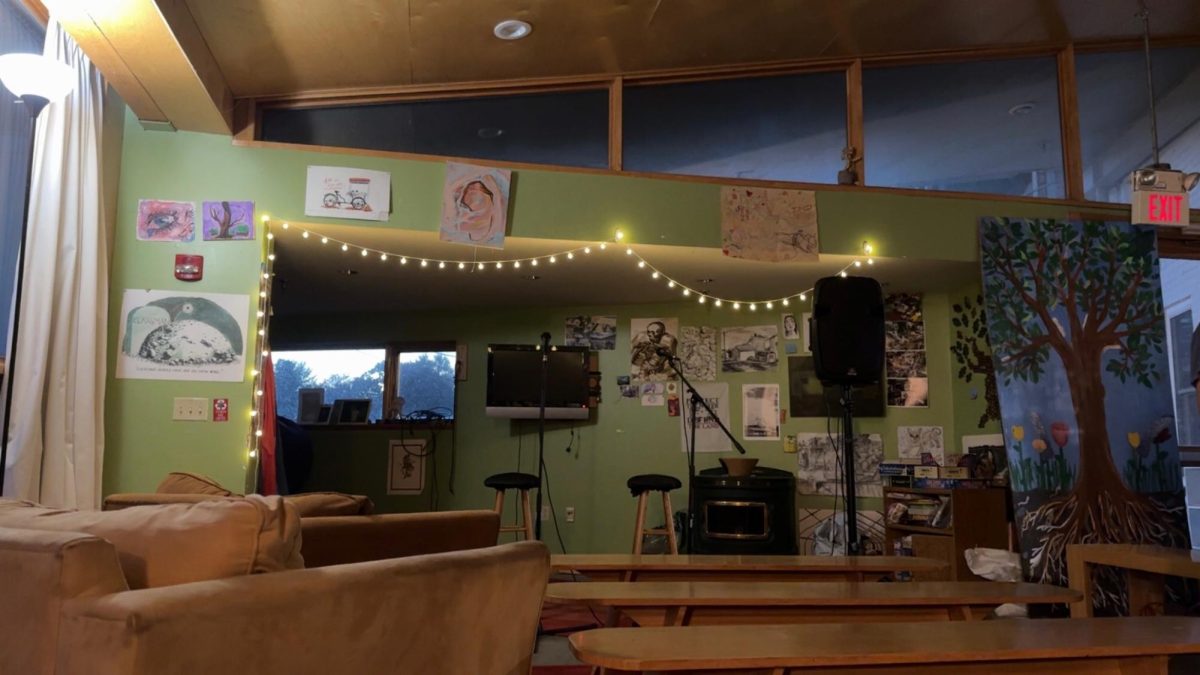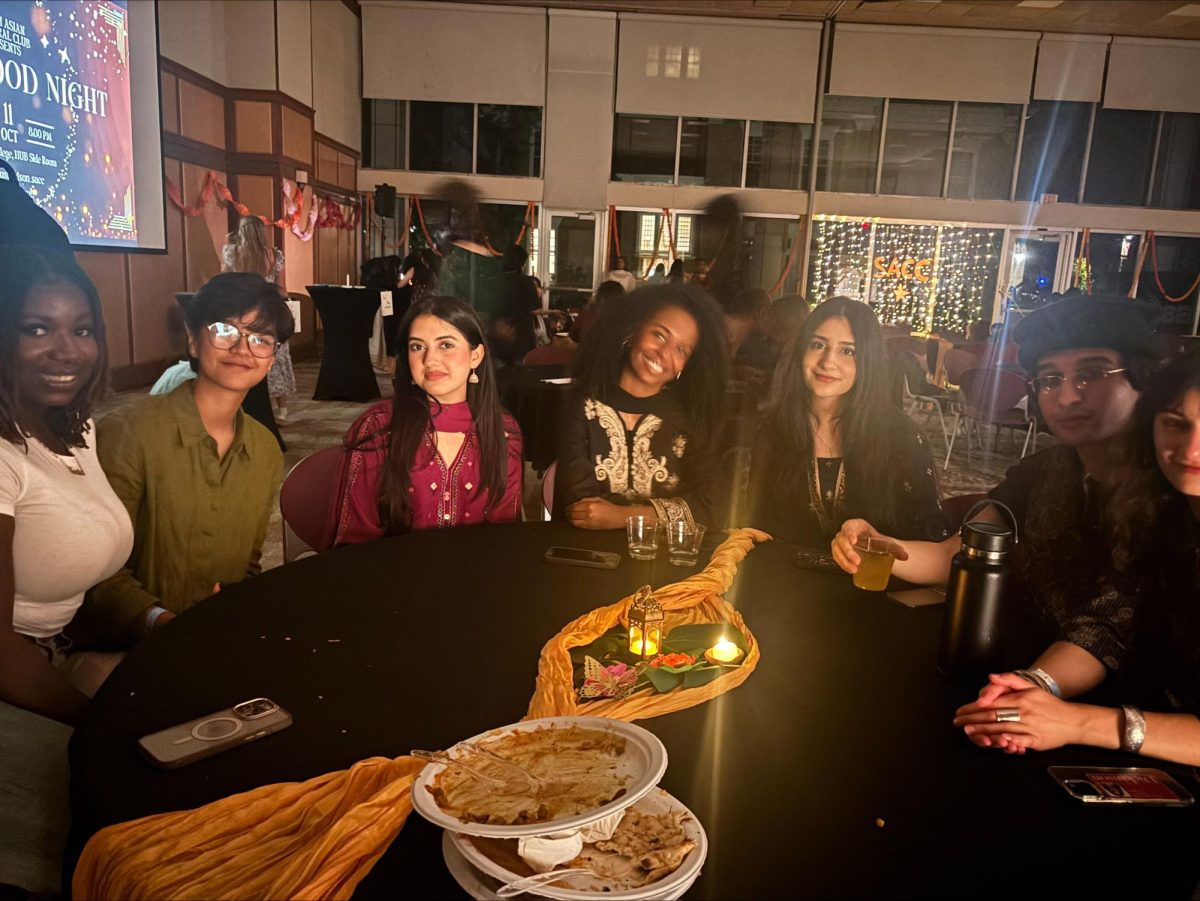Two Dickinson alumni, Olivia Wilkins ’15 and Zoe Irons ’18, were hired this past spring as an Assistant Professor of Chemistry and a Visiting Assistant Professor of Biology, respectively. Wilkins is an astrochemist who graduated from Dickinson with a B.S. in Chemistry and Mathematics, and Irons is a developmental biologist who graduated from Dickinson with a B.S. in Biochemistry and Microbiology and a minor in Creative Writing.
Following her graduation from Dickinson, Wilkins went to Cologne, Germany as a Fulbright Research Fellow to do Astrochemistry research with the Cologne Laboratory Astrophysics Group. Wilkins continued her education at the California Institute of Technology (Caltech), earning a doctorate degree in Chemistry. At Caltech, Wilkins was part of the Caltech Project for Effective Teaching (CPET) and taught many courses, which helped to foster and develop her interest in teaching.
After earning her doctorate degree, Wilkins was a postdoctoral fellow in the NASA Postdoctoral Program (NPP) at NASA Goddard Space Flight Center, where she worked in a lab doing cosmic ice experiments. Wilkins aided undergraduate mentees during her time at NASA but learned that she missed teaching classes.
Wilkins said she wanted to return to teach at Dickinson because she “wanted to have those meaningful relationships with my students, like I had with my faculty members when I was here.” Wilkins explained that one of her favorite memories as a student at Dickinson was after she defended her chemistry thesis and was able to see the pride on the face of her academic advisor, Amy Witter, Professor of Chemistry.
At Dickinson, Wilkins said she is researching the “evolution of molecules and chemicals in space, specifically through star forming regions or star formation” both observationally, using an ALMA telescope, and experimentally, in the lab.
As a student at Dickinson, Irons did research with John Henson, Professor of Biology, at Friday Harbor Laboratories studying sea urchin embryo fertilization in the first mitotic division. She was also a member of the Mermaid Players, where she served as a stage manager.
Irons went on to pursue a doctorate degree in Molecular Biology at the University of Oregon, where she said she worked with Dr. Dan Grimes and used “zebrafish as a model organism to study early body access and spinal development.” Despite initially thinking she wanted to do research similar to her undergraduate research, Irons explained that being at a large research university allowed her to rotate through different labs and discover she enjoyed working with zebrafish.
During her time as a graduate student, Irons also individually mentored an undergraduate through his honors thesis work, which involved using zebrafish as a model organism to demonstrate a specific protein’s role in the early development of vertebrates. Being able to work with a student over several years and watch his skills as a scientist develop was “one of my favorite parts of my graduate work,” Irons said.
Irons said she wanted to return to Dickinson because she “wanted to come back to a small college environment where the focus was really on the teaching and mentoring of undergrads.” At Dickinson, Irons is teaching a class independently for the first time, and she said she is working on obtaining some zebrafish from Penn State to use in some of her labs.
Wilkins is currently teaching CHEM 341: Quantum Chem & Spectroscopy and CHEM 131: General Chemistry I with Lab, and Irons is currently teaching BIOL 132: Intro to Molecules/Genes/Cells.






